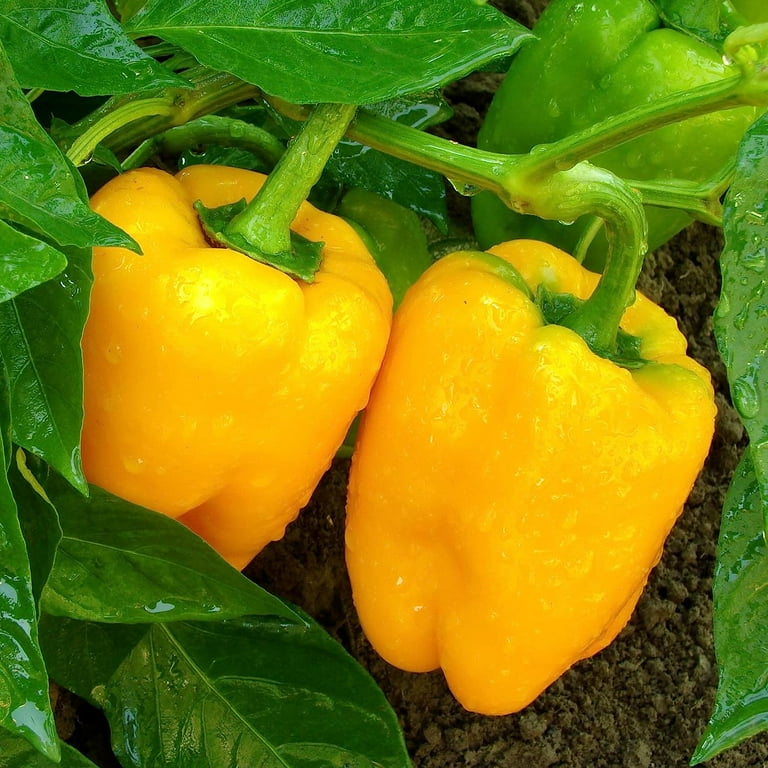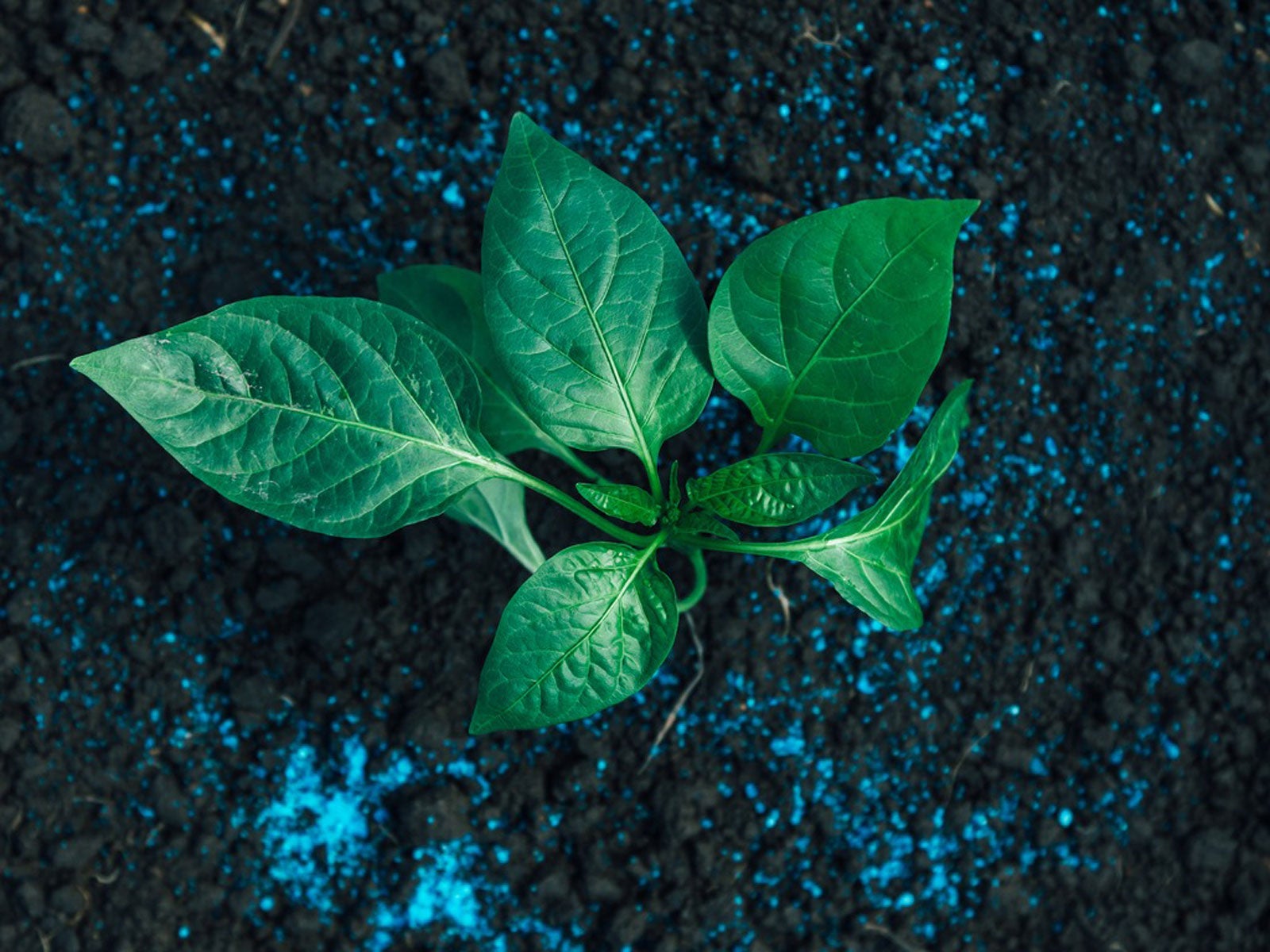Picking the Best Fertilizers for Peppers: Specialist Recommendations
Picking the Best Fertilizers for Peppers: Specialist Recommendations
Blog Article
Organic Vs. Synthetic Fertilizers: Which Is Best for Nurturing Healthy And Balanced Pepper Plants?
In the world of nurturing healthy pepper plants, the selection in between synthetic and natural fertilizers stands as a critical decision with far-ranging effects. While both choices objective to provide essential nutrients to sustain plant development, the subtleties of their influence on the dirt, plant wellness, and the environment trigger an argument that mirrors throughout the horticulture neighborhood. Understanding the distinct benefits and potential pitfalls of each plant food kind is vital for pepper cultivators looking for to maximize their yields while preserving an eco-conscious and sustainable approach.
Advantages of Organic Fertilizers
Organic plant foods provide an environmentally-friendly and sustainable strategy to nourishing pepper plants, supplying crucial nutrients without the usage of artificial chemicals. These natural plant foods are stemmed from natural resources such as garden compost, manure, bone meal, and algae, promoting dirt health and wellness and biodiversity. Unlike artificial fertilizers, organic alternatives launch nutrients gradually, ensuring a stable and well balanced supply for pepper plants to prosper.
One substantial benefit of natural plant foods is their capacity to boost dirt framework and water retention. By improving dirt health and wellness, organic fertilizers advertise beneficial microbial task, which aids in nutrient uptake by pepper plants. In addition, natural fertilizers minimize the threat of chemical run-off, protecting water resources from pollution and guarding the setting.
Moreover, natural fertilizers contribute to long-term soil fertility by advertising the growth of beneficial dirt organisms. These microorganisms aid break down raw material, launching nutrients in a kind that is easily obtainable to pepper plants. best fertilizers for peppers. By promoting a healthy and balanced dirt ecological community, natural plant foods sustain sustainable pepper farming methods that benefit both plants and the environment
Downsides of Synthetic Fertilizers
Synthetic fertilizers, in comparison to their natural equivalents, posture numerous negative aspects when utilized to nurture pepper plants, impacting both plant wellness and ecological sustainability. One major downside of synthetic plant foods is their tendency to seep nutrients from the dirt rapidly. This rapid leaching can result in nutrient inequalities in the soil, causing plants to experience toxicities or shortages. In addition, synthetic fertilizers can damage beneficial dirt microorganisms, such as earthworms and valuable microorganisms, interrupting the soil ecosystem's balance.
Moreover, the overuse of synthetic plant foods can add to water air pollution. Excess fertilizers not soaked up by plants can wash away into water bodies, resulting in eutrophication, where algae flowers deplete oxygen degrees in the water, harming marine life. Additionally, synthetic fertilizers are commonly originated from non-renewable resources, such as fossil fuels, adding to carbon exhausts and environmental destruction throughout their production.
Nutrient Absorption Comparison
Reliable nutrient absorption plays a crucial function in the find more total health and development of pepper plants. When comparing artificial and natural fertilizers in regards to nutrient absorption, organic fertilizers have the advantage of offering a much more well balanced and slow-release source of nutrients (best fertilizers for peppers). Organic plant foods consist of a variety of macro and trace elements that are not just useful for the plants however additionally promote healthy soil microbial task, which helps in nutrient uptake. On the other hand, artificial fertilizers usually give a fast launch of nutrients, which can bring about leaching and runoff, leading to lower nutrient absorption prices by the plants.
Additionally, organic plant foods improve dirt structure and water retention ability, permitting pepper plants to access nutrients extra efficiently. This enhanced soil high quality assists in root advancement, allowing much better nutrient absorption. Synthetic fertilizers, although originally improving plant development because of their high nutrient concentrations, might hinder lasting nutrient absorption by degrading soil wellness in time.
Environmental Impact Factors To Consider

On the various other hand, artificial plant foods, although frequently more focused and right away available to plants, can have detrimental results on the atmosphere otherwise used correctly (best fertilizers for peppers). Their manufacturing calls for high energy inputs, causing greenhouse gas discharges and adding to climate modification. The drainage of excess artificial fertilizers can infect water sources, leading to eutrophication and harming water communities.
Ideal Plant Food Practices for Peppers
To accomplish this, it is important to follow ideal fertilizer techniques customized to the particular needs of pepper plants. One vital method is to carry out a soil test prior to using any fertilizers.
Another crucial technique is to feed pepper plants at the right time. Generally, peppers take advantage of getting fertilizer at planting and after that once again when they start to flower. Over-fertilizing can result in nutrition discrepancies and harm the plants, so it is important to adhere to advised application rates.
Additionally, selecting a well balanced plant food with an NPK proportion that suits pepper plants' demands is basic. Ultimately, incorporating synthetic and organic plant foods deliberately can aid support healthy and balanced pepper plants while decreasing environmental impact.
Verdict

Organic fertilizers offer an environmentally-friendly and sustainable strategy to beneficial pepper plants, supplying essential nutrients without the usage of synthetic chemicals. Unlike artificial fertilizers, natural choices release nutrients slowly, making sure a balanced and steady supply for pepper plants to prosper.
Artificial plant foods, in comparison to their natural counterparts, pose various drawbacks when used to nurture pepper plants, influencing both plant health and environmental sustainability. When contrasting natural and artificial fertilizers in terms of nutrient absorption, natural fertilizers have the advantage of offering a much more balanced and slow-release resource of nutrients.In addition, organic fertilizers enhance soil structure and water retention capability, allowing pepper plants to accessibility nutrients extra efficiently.
Report this page